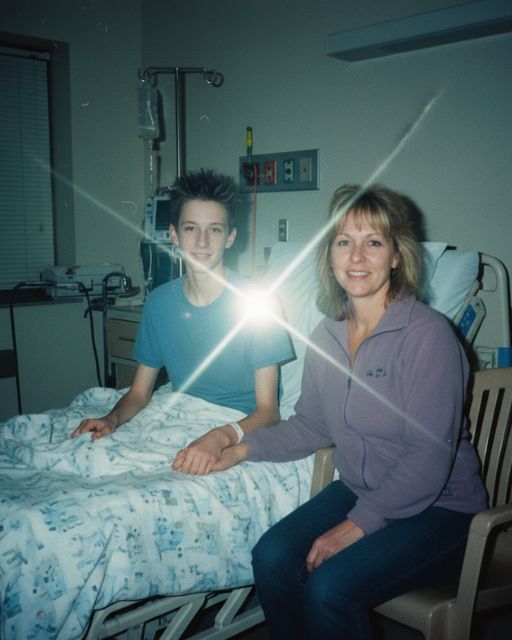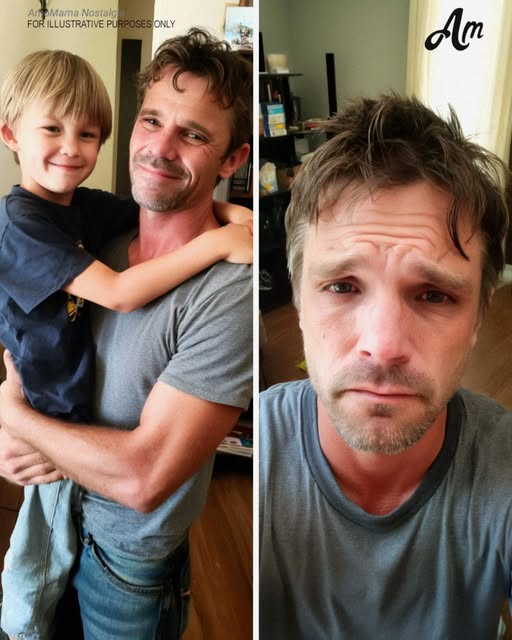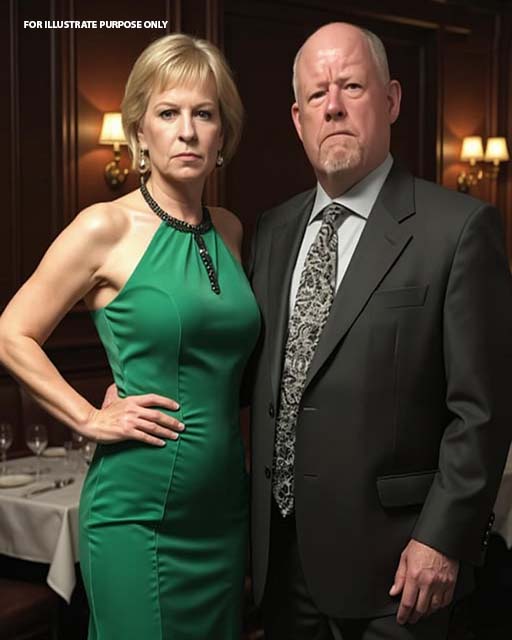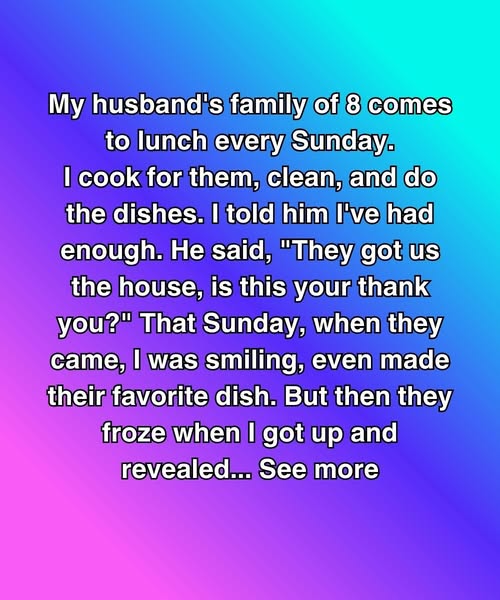My son is fourteen, and I feel twice that. People call it co-parenting. We never had that. My ex has hated me since the day I wouldn’t let the woman he left me for into my delivery room. He decided if she couldn’t come, he wouldn’t either. Fourteen years later he still tells anyone who’ll listen that I “robbed him” of his first child’s birth.
He rewrote the rest, too. He tells our son I kept him away for the first five months when I still have the unread messages I sent—photos, updates, invitations—stacked like fossils in my email.
He and his wife rub salt in it. They brag about being in the room for their four kids—“That’s when you really bond”—like my son should blame me for the hole his father dug. It backfired. Instead of hating me, my son put up walls around them.
He’s been in therapy for years. He tells me he wants to live with me full-time, but the court won’t review custody until he’s sixteen. So he splits weeks, comes home quieter each time, like he’s trying to shrink himself to fit two houses.
Last month he needed minor surgery. His dad showed up after they’d already wheeled him in. He didn’t ask about our kid. He cornered me in the hallway.
“I don’t get why he doesn’t like us,” he said. “You’ve ruined everything. Fix it.”
Something snapped. I told him he’s been a terrible father, and if he ever looked in a mirror he wouldn’t need to ask why our son shuts down.
He smiled, slow and smug, and held up his phone.
“Busted,” he said.
A nurse—K. Dorsey on her badge—slid between us. “Sir, filming in patient areas isn’t allowed.” He pocketed the phone, all innocence. I was shaking. He hadn’t come to support his son. He’d come to bait me.
They called me to recovery. My boy, groggy and smiling, squeezed my fingers. “It’s over, yeah?” he whispered. I told him he’d done brilliantly. I didn’t mention his father or the video. He needed calm, not another storm.
That night a lawyer’s email landed: “Notice of Intent to Seek Modification.” Attached: a link to a “recording of emotional abuse.” The clip started with my outburst, ended with the nurse. No context. No months of ignored messages. No years of therapy notes. I watched twice and felt sick.
I took a breath and opened the folder I never delete. Screenshots. Hospital emails from the day he was born. One message from my ex: “If she’s not allowed in the room, I’m not coming either.”
I called Ms. Alvarez, the family solicitor from our mediation years ago. She watched the clip, sighed, and said, “It’s edited and it violates hospital policy. It’ll matter when we show the pattern.”
We built a timeline—missed birthdays, late pickups, the inhaler he forgot. Dr. Patel, our son’s therapist, sent notes about anxiety spikes after contact weekends. “Judges don’t love drama,” Ms. Alvarez said. “They love dates, policies, and patterns.”
Three nights later, my son and I were playing cards when he said, “He showed me the video. Called it a ‘teaching moment.’”
“What did you think?” I asked.
“You looked tired,” he said. “And… I recorded something too.”
My heart stuttered. “What?”
He played an audio file. His dad’s voice was low and cold. “If you’d just be normal at my house, things would be easier. Tell the therapist your mum makes you anxious, not us.” His wife chimed in from the sink: “Your mum likes to control everything.”
Evan paused the file. “They said I should stop talking about feeling weird there.”
“You don’t have to protect me,” I said, squeezing his hand.
“I checked,” he murmured. “Our state’s one-party consent.”
He grinned, a flash of the kid he used to be. We saved the file and sent it to Ms. Alvarez. She wrote back one word: “Gold.”
The hospital called to finalize an incident report. Nurse Dorsey had documented the confrontation and the filming ban. Records from my son’s birth still existed. The social worker’s note said he declined to attend if his girlfriend wasn’t permitted. I forwarded it. Memory had become evidence.
A letter arrived from one of my ex’s church friends. He’d seen the video at a small group and was uncomfortable watching our family turned into a prayer request. He confirmed my ex had missed surgery time and arrived late. It wasn’t much, but it was another voice.
Then the twist. His wife, Karina, messaged me late: “I know you hate me. I’m sorry for my part.” She said she’d seen the plan weeks before the surgery. “He wanted you to explode,” she wrote. “He said the clip would ‘save us money’.”
She explained the strategy—more custody on paper, then a move out of state to reduce child support while keeping the “devoted dad” image. She had emails about a job in Florida. We met in a café. She looked older than I remembered. Tired.
“I thought it was a fairy tale,” she said, pushing her phone to me. Messages from him about “locking down the narrative.” “If she snaps again, we clip it.” “Judge eats that stuff up.”
“Are you safe?” I asked.
“I’m leaving,” she said. “Not today. Soon.”
A week later we were in front of Judge Carter. The courtroom smelled like lemon polish and old books. Darren’s lawyer played the hospital clip as proof of “hostility and alienation.”
Ms. Alvarez didn’t blink. “Your Honour, hospital policy prohibits filming,” she said, handing up the report and the nurse’s note documenting who created the confrontation. The judge frowned, scribbled, then asked for the full video. “It begins where relevant,” Darren’s lawyer said. “Convenient,” the judge murmured.
We played my son’s audio. The room shrank. It was a father coaching a child to mislead a therapist. A stepmother turning pain into blame. Then Dr. Patel testified—dates, symptoms, no drama. Anxiety rose after contact weekends and eased with me.
We submitted the birth record note—“If she’s not allowed in the room, I’m not coming either.”—a single line from fourteen years ago that echoed like a bell.
Karina wrote a statement—dates, emails, the Florida plan. “Intent matters when minors are used in adult games,” Judge Carter said, overruling the objection.
He asked if Evan wanted to speak. My son stood, steady and simple. “I don’t hate anyone,” he said. “I just like myself better at Mum’s. I don’t want to be a message anymore. I want to be a person.”
The judge thanked him, then ruled. Temporary modification pending full review: primary residence with me, midweek dinner visits with his father. Mandatory parenting course and individual therapy for my ex. No filming or sharing our son’s image without mutual consent. A guardian ad litem appointed. Continued therapy.
Outside, Evan leaned against the marble wall and exhaled like he’d been underwater too long. “Toast and jam?” he asked. “Anything you want,” I said.
Karina moved in with her sister and filed for separation. She asked if Evan would tell her youngest it wasn’t his fault. He knelt at the park and told a small boy, “Adults make mistakes. It’s not on you to fix them.” Karina cried into her sleeve and mouthed thank you.
The guardian ad litem visited both houses. He said our home felt like a place to exhale and my ex’s felt like a stage. He recommended keeping the new arrangement.
At the final hearing two months later, my ex brought a certificate from his parenting course and talked about “triggers.” The judge asked if he had anything to say to Evan.
“I shouldn’t have filmed you,” he said at last. “And I shouldn’t have asked you to pretend.”
“Thanks,” Evan said, and that was enough.
The judge made the order permanent. Primary residence with me; time with his dad as Evan felt ready. Any relocation had to be disclosed early. “Trust isn’t a right,” he said. “It’s a balance paid slowly.”
We went for chips by the sea over half-term. Evan took a photo of the horizon and didn’t send it to anyone. At home we built small rituals: Wednesday toasties, Saturday jogs, Sunday films with the dog between us. Sometimes he still gets quiet, but now the silence is rest, not fear.
Karina found a job and a small flat. We keep our messages simple and respectful. One day she wrote, “Thank you for not making me the enemy.” I replied, “Thank you for telling the truth when it was hard.”
My ex takes Evan to dinner most weeks. They walk the river and talk about football, homework, nothing explosive. Evan comes home and says, “It was okay,” and that’s enough for now.
One evening he hugged me in the kitchen. “I don’t think I hate him,” he said. “I think I hated feeling like I had to choose.”
“You never had to choose between parents,” I told him. “You only ever had to choose yourself.”
Here’s what I learned. When someone uses shame as a tool, your boundary isn’t cruelty; it’s wisdom. When someone rewrites history, keep your receipts—and keep your heart. Let the facts work, and let kindness have the last word. Accountability isn’t punishment. It’s protection for the child you both brought into the world.
Love—the good kind—survives the noise by getting quiet. It shows up to appointments, makes soup, and tells the truth even when your hands shake.
If any of this sounds like your story, I hope you feel less alone. Draw your line. Wish the other person well from the other side of it. Our ending isn’t perfect, but it is good where it matters. My son is safe, heard, and free to grow without playing referee.
That is enough.




